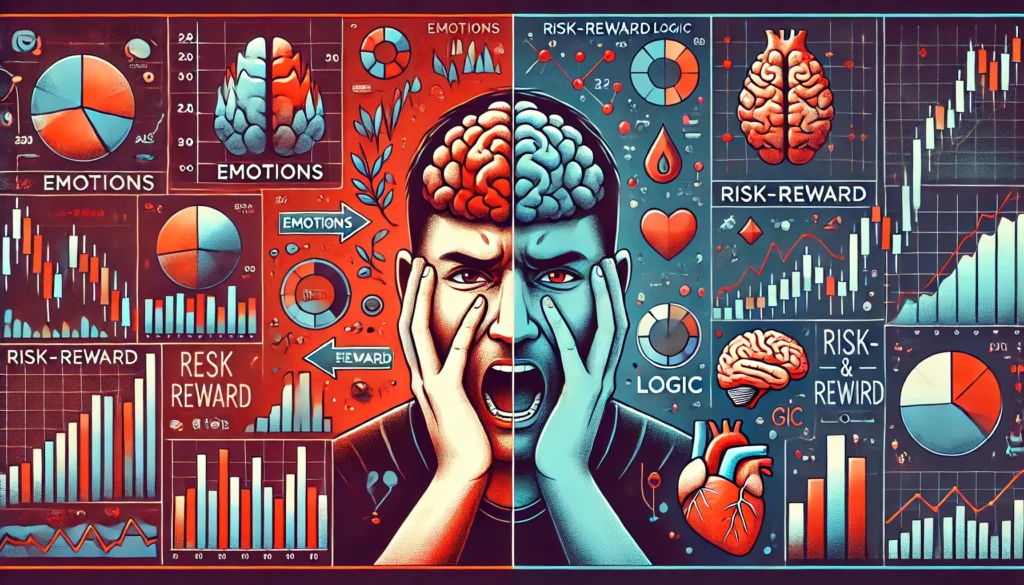The Psychology of Trading: How to Control Emotions and Win
Trading is not just about strategies, charts, and numbers; it is also about psychology. The ability to control emotions and make rational decisions often separates successful traders from those who struggle. Emotional discipline plays a crucial role in avoiding impulsive decisions that can lead to significant losses. In this guide, we will explore the importance of trading psychology, common emotional pitfalls, and strategies to master emotional control.
The Role of Psychology in Trading
Psychology influences every trade you make. Your emotions affect decision-making, risk management, and consistency. The most common emotions that impact traders are:
Fear: Leads to panic selling or hesitation in entering trades.
Greed: Causes overtrading and holding onto losing positions for too long.
Overconfidence: Encourages excessive risk-taking and ignoring market signals.
Regret: Creates hesitation and second-guessing, leading to missed opportunities.
Impatience: Forces traders into premature trades, increasing risks.

Common Psychological Mistakes in Trading
| Mistake | Impact on Trading | How to Overcome It |
|---|---|---|
| Emotional Trading | Leads to irrational decisions | Follow a structured plan |
| Overleveraging | Increases risk and potential losses | Use proper risk management |
| Chasing Losses | Results in larger losses | Accept losses as part of trading |
| Ignoring Stop-Loss | Leads to significant drawdowns | Always use stop-loss orders |
| Trading Without a Plan | Causes inconsistency | Develop and stick to a strategy |
How to Control Emotions While Trading
1. Develop a Trading Plan
A well-defined trading plan removes emotional decision-making. Your plan should include:
Entry and exit strategies
Risk management rules
Position sizing techniques
2. Use Risk Management Techniques
Good risk management keeps emotions in check. Techniques include:
Position Sizing: Avoid risking more than 1-2% of your capital per trade.
Stop-Loss Orders: Limit potential losses automatically.
Diversification: Reduce risk by trading multiple assets.
3. Maintain Emotional Discipline
Train yourself to stay calm and objective. Some ways to do this are:
Mindfulness and Meditation: Helps control impulsive reactions.
Avoid Overtrading: Stick to high-quality trades rather than frequent, low-quality ones.
Detach from Losses: Treat trading like a business, not a gambling game.
4. Keep a Trading Journal
Recording your trades, emotions, and decisions helps you identify emotional patterns and improve discipline.
5. Learn to Manage Stress
Stress can cloud judgment and increase trading mistakes. To stay mentally balanced:
Take breaks when necessary.
Engage in physical activities like exercise.
Develop a structured trading routine.

Building a Winning Mindset
To be a successful trader, you need a resilient mindset. This includes:
Patience: Wait for the right trade setup.
Confidence: Trust your analysis, but avoid overconfidence.
Adaptability: Be flexible and open to changing strategies when needed.
Consistency: Follow the same approach even after a streak of losses or wins.
Conclusion
Mastering the psychology of trading is just as important as understanding technical and fundamental analysis. Emotional discipline, risk management, and a structured trading plan are key to long-term success. By controlling emotions and building a winning mindset, you can make better trading decisions and increase your chances of success in the financial markets.
FAQs
1. Why is psychology important in trading?
Trading psychology helps traders manage emotions and make rational decisions, improving overall performance and reducing impulsive mistakes.
2. How can I avoid emotional trading?
Stick to a trading plan, use stop-loss orders, and maintain emotional discipline through mindfulness and journaling.
3. What is the biggest psychological mistake traders make?
The most common mistake is letting emotions like fear and greed dictate trading decisions, leading to losses.
4. How do I recover from a big trading loss emotionally?
Take a break, review your mistakes objectively, and refocus on following a structured trading strategy.
5. Can meditation help with trading psychology?
Yes, meditation and mindfulness can reduce stress and enhance focus, improving decision-making in trading.



